Developer advocacy isn’t a free vacation
While Developer Advocates travel a lot it is far from a free vacation. There is a lot of work that goes into conferences.

It’s hard to deny that one of the highly visible parts of developer advocacy/evangelism is the travel. You see advocates flying to Asia, Europe, Africa, and the list goes on. Who wouldn’t want to be a part of that? Truth is there is a lot of unseen work that goes into these conferences and events.
While I don’t want to dissuade people from getting into advocacy because truth is, I love it. I want to pull back the curtain on all the hard work done by developer advocates (and evangelists) surrounding conferences.
Pre-conference:
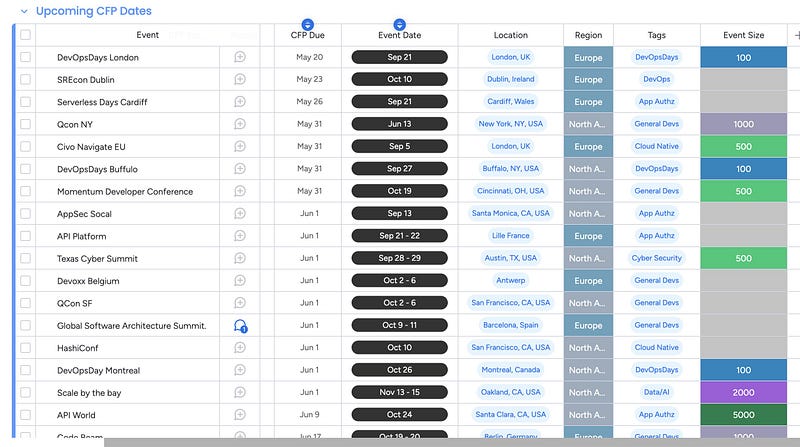
Before we even get into attending conferences we have to look over which conferences?! Above is Peter’s board for planning which conferences he’s submitting to. Here advocates have to pick which conferences best align with their companies goals. For example, for product feedback you may attend several smaller conferences with workshops. For product promotion, they may focus on larger conferences and trying to land keynote spots.
2–5 months before a conference they open up their call for proposals. This is where we have to make a pitch for a talk (that we may have not even written yet). The amount of work here varies but typically they require 100–250 words on the topic, title, and then a personal bio. The challenge here is not every talk we submit gets accepted. Marino shared his talk acceptance rate is around 28%. That’s pretty typical from what I’ve heard from other advocates. We may need to submit 3–4 talks to get into the conferences we want to attend.
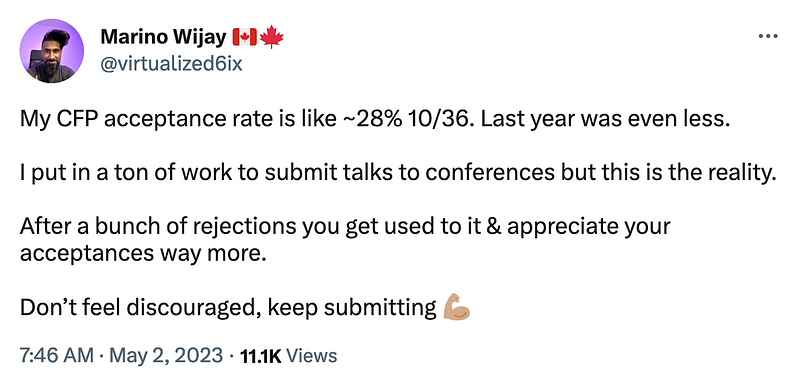
Before the conference they send acceptances or rejections. For those with accepted talks the real work begins. Now we are on the hook to write a compelling talk. My first talk (which was a roughly 15 minute talk) took me nearly a month to write. Why? I needed to ensure my talk resonated with the audience. The words used need to be precise and accessible. For example, I wanted to describe something as simple and Kyle, my mentor and fellow advocate, pointed out how that could alienate people who were new to tech. Simple to us could be challenging for someone else.
Presentations often need imagery to make sense. Images have licenses that may exclude us from using them so we may need to create your own diagrams and images. If an advocacy team is well resourced they may have a design team they can work with. Even then the design team will need a good description of what we’re are looking for.
Many presentations also use code. Does the code run? Do people need to install a lot of prerequisites to get it running? How do we share it with the audience? Short links? QR Code? These are just a few of the considerations we make when writing a presentation.
Traveling:
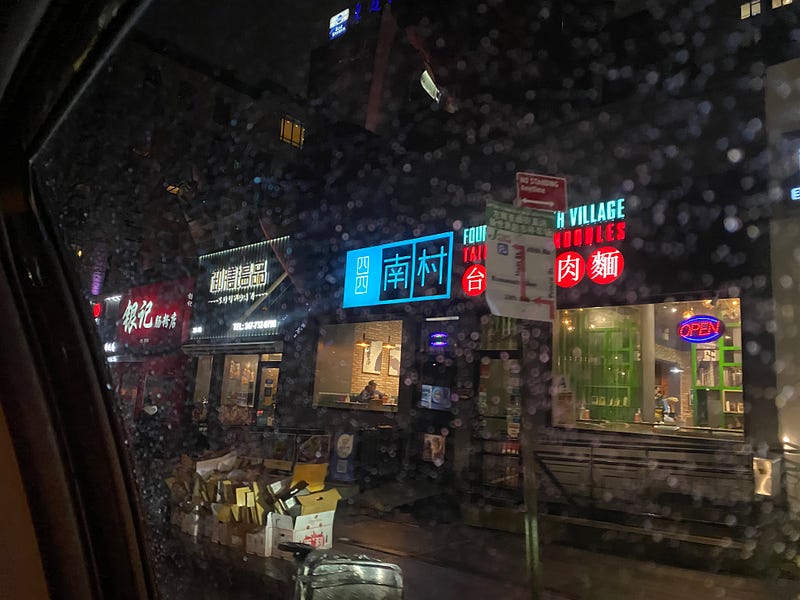
This is one of those things that is nice and not. It’s great to get to experience new locations but getting to and from conferences can be a nightmare. Here are a few notable examples from my first year as a developer advocate:
- New York — Flight home delayed 3 times and then cancelled. Stayed an extra night. I had gotten soaked in the rain and didn’t have another set of clothes because I only planned to stay one night.
- Dallas — Flight delayed 3 times and then cancelled. Stayed an extra night and had to work out my own flight schedule. American Airlines was trying to schedule me to take 2 flights over the next two days to get home.
- Prague — Flight delayed over 3 hours causing me to miss my connection turning ~15 hours of travel into 26 hours. Caught Covid coming home, had to quarantine, and missed my Daughters 3rd birthday party. 😢
- Seattle — Almost missed my flight home because my alarm didn’t go off causing a lot of general panic and mayhem.
A small note here: cancelled flights rarely mean more time in that city. By the time they cancel the flight often you have already been sitting in an airport for 5+ hours. Rescheduled flights are often for early the next day, not leaving time to tour the city more.
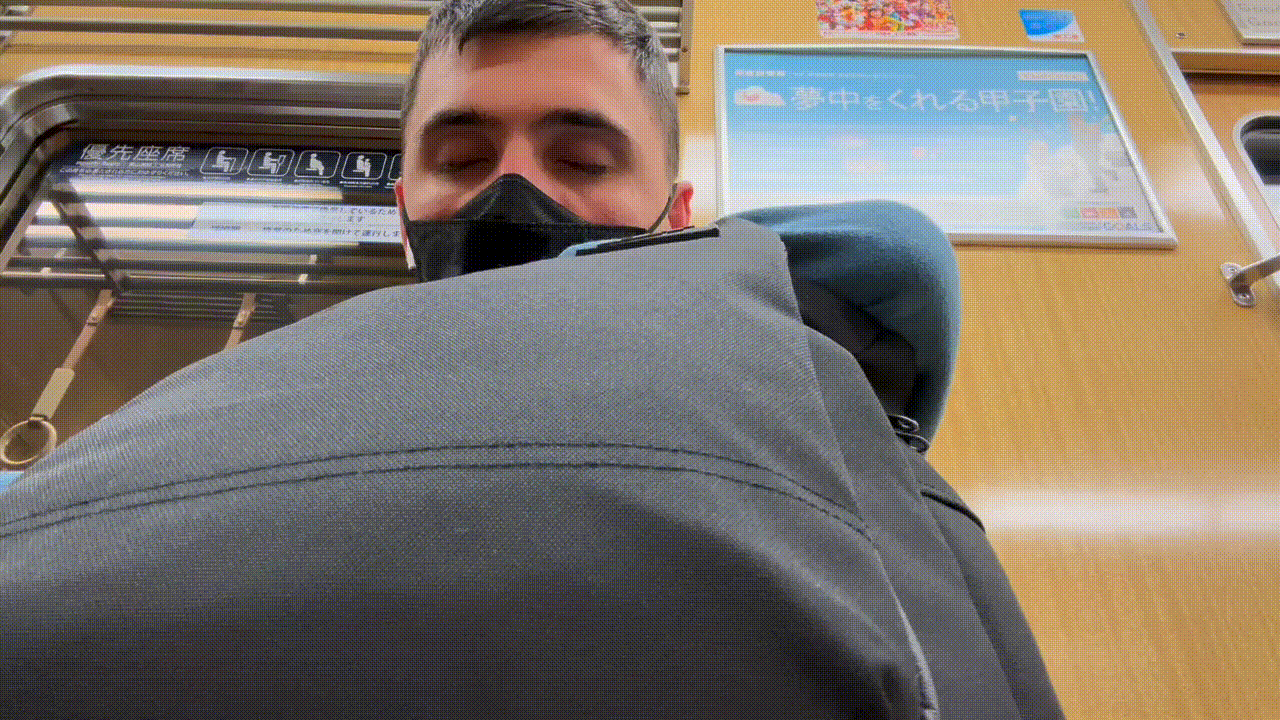
Getting to and from the conference can be challenging so here are some ways to set ourselves up for success! About a month before the trip look over the information needed to travel. Where is the event, the hotel, how do we get there? Is physical currency needed? Do we have all the documentation ready (vaccines, visas, passport)? Going through this will save a lot of headaches.
At the conference:
During the conference we are working. That could mean, presenting, standing at our booth, talking about our product, or networking. Hopefully, we are able to attend some of the talks however there is not always time for that. Often after the conferences you will be going to dinner with the people you met at the conference or maybe to a networking event. For KubeCon, I spent almost 3 days from 8 am to 9–10 pm talking to people.
Tip: After you have talked to someone take a note of who they were, what you talked about, and what you want to follow up with.
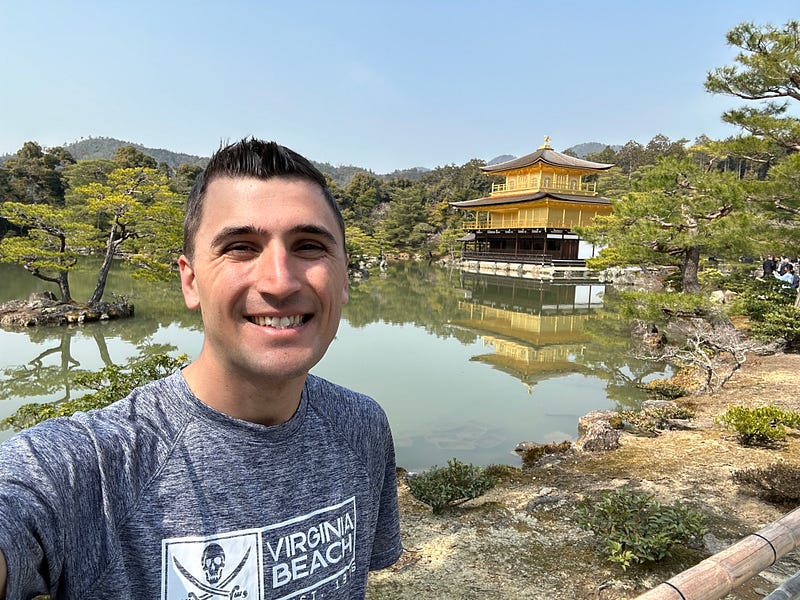
Tip: I would recommend if traveling to in a city you want to tour book a day or two before your conference for sightseeing. That way if there are delays getting to the conference you still have a healthy buffer before missing any of the conference.
For my Japan trip, I spent 55 hours traveling, 32 hours doing conference activities, and half of that was over the weekend. Because of the time I spent I worked with my boss and was able to take some time to tour Japan outside of the work I did. Many other advocates that I’ve talked to shared that their bosses would make allowances for similar things. Traveling to and from a conference is work so its good to recognize that and take some time off to not burn out.
After the conference:
Even after the conference there are 3 things I do. First there is the follow up. This is where I do all the things I agreed to during the conference. This includes: sending docs, making introductions, look into an issues, etc. I go through this list several times over the next few weeks and try to action on or at least follow up with every item. This step is exceptionally important to build trust.
The second, is recapping product feedback. I talk to many of our users during conferences and its important that feedback makes its way back into the product.
Finally, we do a recap meeting. A recap meeting is where I try to summarize several of the things learned during the conference for the teams. These could be technical learning’s, industry trends, or strategies we could use to improve our efficiency. Additionally, I look over the conference as a whole. Was it a good spend of company money? How can I prove that. Would we do something different when attending in the future?
Developer advocacy isn’t a free vacation
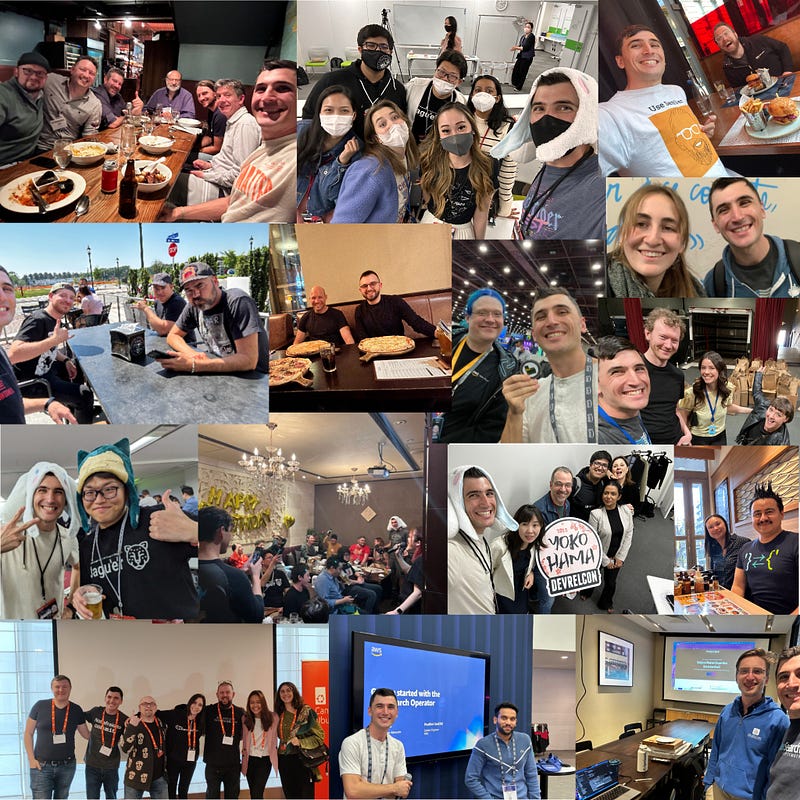
Advocacy is not a free vacation. I spend around ~3 months a year away from my wife and two children. When working conferences it can be long hours and there is a lot of stress involved with presenting. All that to say, I love working as a developer advocate. I’ve met so many wonderful people (many pictured above) but it is far from a free vacation.
If you’d like to know more about advocacy and how you can get started check out this video I recently did about my journey into developer advocacy.